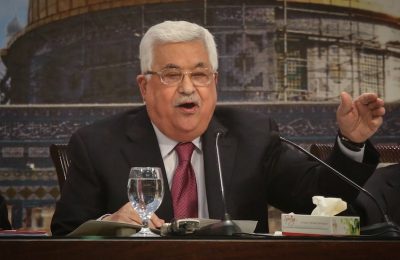Oh, how things have changed.
The occasion of Israel’s 65th anniversary is a natural point for reflection. And it is astounding how significantly both the discourse and reality have changed over the past 40 years.
Think back to 1973. It was the year of the Yom Kippur War, when Israel was attacked by a solid and united Arab front from all directions. Fast forward to 2013. The Arab-Israeli conflict – in its classical form – no longer really exists. Instead of an Israel versus the Arab world model, the paradigm has shifted: Israel now conducts its neighborhood foreign policy on a largely bilateral basis. The experiment of Nasser-style Arab nationalism failed miserably, and the Arab world, especially considering the current fissures, no longer even feigns a sense of unity. Alliances in the Arab world today are formed more along religious lines, and Iran, a non-Arab nation in the heart of the Middle East, has evolved in the interim into both a major threat to regional stability and security as well as a powerful leader.

Through the disintegration of the classic Arab-Israeli conflict, Israel has gained the flexibility to conduct and conclude bilateral peace negotiations (such as with Egypt and Jordan), which means the Jewish state is no longer surrounded by enemies in the way it once was.
Another incredible change, upon reflection, is the mainstream perception of Palestinian Arabs among Israeli (and Diaspora Jewish) society. Once upon a time, and not that long ago, Palestinians, as an entity separate from the blanket “Arab nation” did not exist – at least in the eyes of most Israelis. In 1969, then Prime Minister Golda Meir famously told The Times that “there is no such thing as the Palestinian people”, a sentiment which though some may still agree with, is certainly no longer the widespread view among Israelis. When Meir expressed her opinion, it wasn’t controversial, it was mainstream.
That the acceptance of a Palestinian people – and consequently a future Palestinian state – would one day become the norm was perhaps inevitable, but certainly not predictable. This recognition on the part of Palestinians was earned through a mix of terrorism and politics and, in no small part, support from the international community.
Israeli leaders, too, played a role, one that is in hindsight sometimes viewed through rose-tinted spectacles.
Take Yitzhak Rabin, for example, the Israeli leader most associated with the peace movement and a name that to this day is often touted by peaceniks and leftists as the last great hope of the Israeli-Palestinian peace process. If only we had a leader like Rabin, it’s often lamented, the implication being that he was unique in his commitment to peace with the Palestinians.
Yet, Rabin, despite the (in)famous handshake with Yasir Arafat, and his receiving of the Nobel Peace Prize, never publicly advocated for an independent Palestinian state. As defense minister under Yitzchak Shamir, Rabin first proposed ‘limited self rule’ for Palestinians, and remained committed to that principle until the end. In 1995, at the Ratification of the Israel-Palestinian Interim Agreement, Rabin said to the Knesset:
“We would like this to be an entity which is less than a state, and which will independently run the lives of the Palestinians under its authority. The borders of the State of Israel, during the permanent solution, will be beyond the lines which existed before the Six Day War. We will not return to the 4 June 1967 lines.”
(As an aside: In the same speech Rabin also affirmed Ma’ale Adumim, the area currently being protested by Palestinian tent encampments, as part of the State of Israel, and authorized construction on E-1, the very corridor that in recent months has come under particular scrutiny. He also supported the incorporation of settlement blocs into the State of Israel and the retention of settlement blocs in the new Palestinian ‘entity’.)
He, like every other prime minister since, stood for an undivided Jerusalem as Israel’s capital. As one of Jerusalem’s liberators in 1967, and a Jerusalem native, one can imagine this carried a particularly emotional weight for him.
None of this is to underestimate Rabin’s significance. His handshake with Arafat and recognition of the PLO was revolutionary. From today’s perspective, when relations between Israeli and Palestinian leadership have become somewhat normalized, it’s difficult to imagine just how revolutionary this was. Betrayed was how many Israelis felt. How could Rabin shake the same hand that bore the blood of innocent Israeli lives?
Rabin also refuted – in the same Knesset speech mentioned above – Golda Meir’s absurd, but widely held, assertion that no Palestinians were removed or resettled during the process of Israel’s establishment.
But inasmuch as Rabin was revolutionary, he was a product of his time, and limited by his experiences and reality. He was the leader Israel needed in 1993, but Israeli society has moved far past where Rabin stood in 1995. This reality is reflected in the fact that the rhetoric of Benjamin Netanyahu, perceived as a hardline hawk, is more inclusive of Palestinians than Rabin’s ever was.
The discourse and reality have changed. Forty years ago, in 1973, Israel was fighting for its survival in a war with a bloc of Arab nations. Twenty years ago, in 1993, Israel signed the Oslo Accords and recognized the PLO as the representative of the Palestinian people. Today, in 2013, while question the durability of Oslo, the fundamental changes in mindset that the agreement brought are still in place.
Today’s Israel is one where the Palestinian right to self-determination is not only accepted, but also widely supported. Today’s Israel hopes for peace with its neighbors, and demonstrates a readiness to undertake difficult steps to achieve this.
Just this one (albeit vital) aspect – Israel’s evolving view of its neighbors – demonstrates the young country’s flexibility and ability to not only reflect on itself and but also apply the results. These are qualities Israel can be proud of as it celebrates 65 years of independence.













Mazel Tov Israel!! Proud to call myself a Zionist!